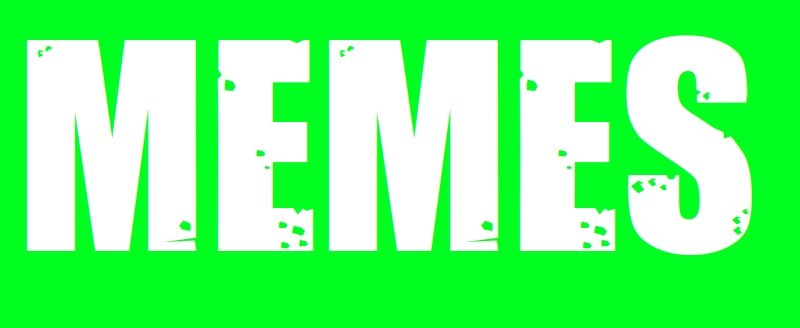Nah. Some humans saw that and thought “if we can con enough people into working 40 hours weeks, I can buy a holiday home here”
- 5 Posts
- 909 Comments

 1·1 day ago
1·1 day agostarting to write and then cancel my post.
I get what you mean, I do a lot of that myself. Although it’s unfortunate that I often find it easier to hit send when replying to internet strangers than I do when messaging my friends. I suspect it’s because online feels far lower stakes, even though my friends would be far more charitable to a poorly articulated idea than the internet would.
If it helps, I don’t think you should feel bad about cancelling unwritten messages. Maybe sometimes you don’t actually know enough to have an opinion on a topic, so refraining is the wise thing. Maybe other times, you have Thoughts, but they’re still sort of fermenting in your head and they’re not quite ready yet. Or maybe you’ve distilled your Thoughts down so that you know what message you want to convey, but you don’t think that this particular conversation is the right time or place for them (possibly due to realising you’re in conversation with someone who isn’t arguing in good faith and continuing would be unproductive). These (and more) are all valid and good reasons to not actually submit a post or comment you start writing.
The advice that I try to give myself is that we’re under enough pressure as it is without helping more on unnecessarily. Sometimes that pressure is because we have something that we desperately want to say, but it’s hard to articulate it in a way that doesn’t feel like we’re dishonouring the meaning of what we intend. That pressure is hard to counter because it’s coming from the weight of the thing we want to say, but I ease it by reasoning that the important ideas will find their own way out of our heads and into the world, if given time, and that they will still be important.
I figure that there’s an infinite array of conversations on the internet that could’ve happened but didn’t. It’d be a shame if we let the conversations that never ended up happening distract us from other conversations that we’re actually having. Which is all to say that it’s okay if you start replying to this comment and cancel it. Maybe in the next
lifethread, eh?

 2·1 day ago
2·1 day agoI tend to play it at my friends’ New Year holiday, which is a context where we have like, 12 different decks of playing cards to pick from, which helped with that scoring issue. Regarding the cards taking a beating, that scans with my experience — there was a sort of communal pool of cards and games during the holiday, so it was fuzzy about who owned what, there were a couple of sets of playing cards that weren’t meant to be used to play racing demons (they did seem pretty fancy).
I seem to recall that an issue we faced somewhat (even with a pretty large diversity of playing cards styles) was that some styles were harder to read than others (such as due to stylised card designs, or low contrast colour etc.). We had 3-4 decks that were equally easy to read, yet visually distinct enough for scoring, so we were good most of the time. If there were more than 4 at the table, it’d start getting trickier and people would have to start using decks that were harder to read (I.e. decks like this. We tended to rotate the decks each game, so if there were awkward decks in play, it wasn’t the same person using it each time at least. I wonder if the other issue you describe with playing cards is this contrast/readability problem that arises when having to find cards with different backs.

 5·3 days ago
5·3 days agoI got a hell of a lot smarter when I allowed myself to not have opinions on things. Like if a friend asks me if I have heard of [thing], I am nowadays much better at saying “No, I havent, tell me more” or “I’m not sure. It sounds familiar though. Remind me?”. A big part of this is being in spaces where it feels safe enough to be vulnerable in saying “I don’t know”.
A cucumber does not have a flared base.

 4·4 days ago
4·4 days agoYeah, this is a big thing. A sentiment that comes to mind is “we judge other people by their actions, but ourselves by our thoughts”. Sometimes I reread past comments of mine and cringe at how ambiguous the tone is.

 5·4 days ago
5·4 days agoYeah, I think this is fairly common. I’m pretty good at not being overly adversarial online, but that takes me a bunch of active effort. Sometimes that means taking a big breath and moving on.
I think it’s admirable that you care about contributing through commenting; I saw a similar stat when I moved to Lemmy and I have also been more active in commenting. However, if you’re not enjoying how you’re typically engaging, perhaps a different framing could be useful: rather than (or in addition to) thinking about commenting as you contributing to the community/platform, think about it as something that you’re doing to enrich yourself. For example, sometimes when I do get into spicier discussions, it’s because I am responding to someone I disagree with, but whose points have caused me to think differently. Or maybe I am enjoying the practice in articulating my views on a complex matter. Or maybe it’s cathartic. Thinking about what I hope to gain from a discussion helps me to avoid unproductive discussions where it’s just mutual attacks.
If you can’t find a middle way, it’s also okay to not comment on things. My opinion is that we do owe a duty to the communities we inhabit, and in the online world, that might imply that it’s good to be contributing via commenting. However, informational self-care is incredibly important nowadays, and it’s so easy to become burnt out. It’s okay to not engage in behaviours that cause you harm (or aren’t encouraging you to grow in the way that you would prefer).

 2·4 days ago
2·4 days agoThat game looks pretty similar to a game I know as “Racing Demons”, played with regular playing cards
I knew a guy who used to write loads of love songs. He had a problem with putting partners on pedestals. The first partner he had that he didn’t write a love song for ended up being the woman he married.

Yeah, I’ve been increasingly cynical about this kind of thing. I wouldn’t say that I’m against developing carbon capture technologies, but I am immediately suspicious of anyone who suggests it as something that could help against climate change.
If you’re one for video essays, you might enjoy this, if you haven’t seen it already. https://youtu.be/uCuy1DaQzWI

 3·5 days ago
3·5 days agoYeah, I agree. Like in this case, I’d argue that the “common sense” approach to crime is the punishment model that’s prevalent. The measures that failed are common sense when you understand how the prison system actually works, but I don’t know how common that knowledge is

 3·8 days ago
3·8 days agoI feel like I’m haunted by linear algebra because it keeps cropping up in all sorts of places
I am perplexed by you, but I am glad that you have something that makes you happy.

 9·9 days ago
9·9 days agoA friend of mine had a partner accidentally draw blood when he (consensually) bit them. It got infected and they needed quite serious hospital care. I suppose that counts.
This isn’t expressly leftist content, but I recently found this video thought provoking. It’s by a UK guy who studied history at university and now works on his family’s farm. He explores the peculiar situation we have where (in his view, which is in accord with my own anecdata) UK farmers and other rural workers are overwhelmingly in favour of a socialist agricultural policy, but they vote for right wing parties.
I have an anecdote that doesn’t really answer your question, but makes me smile.
A while back, there was a rent strike at a university which led to the activists occupying a university building for a while. One of the rooms had a large double-sided whiteboard which had the day/week schedule on one side. On the other side, there was a tally chart split into “Anarchist” and “Communist” — a joking rivalry based on the fact that the majority of organisers there would describe themselves as either communist or anarchist. It made me smile because it was a tiny slice of that shared culture that you speak of (which is much harder on the larger scale). It’s such a small thing, but that joking competition did a lot to reconcile the ideological tensions that can arise in diverse activism. Of course, it helped that it was set against an incredibly vibrant and welcoming atmosphere.

 3·9 days ago
3·9 days ago“They go low, we go high” is a phrase I associate with the Obama era.
Oh, I love the vicarious enjoyment from introducing a friend to something I love. It feels like the closest I can get to re-experiencing something afresh without losing my memory. I am envious of Drag for this opportunity.
He also doesn’t get pissed off if you fail, so you can keep trying again and again









I used to do leathercraft commissions. My best customers were LARPers ordering armour, scroll cases etc., and kinksters buying fancy collars, cuffs and harnesses. Sometimes these were the same people